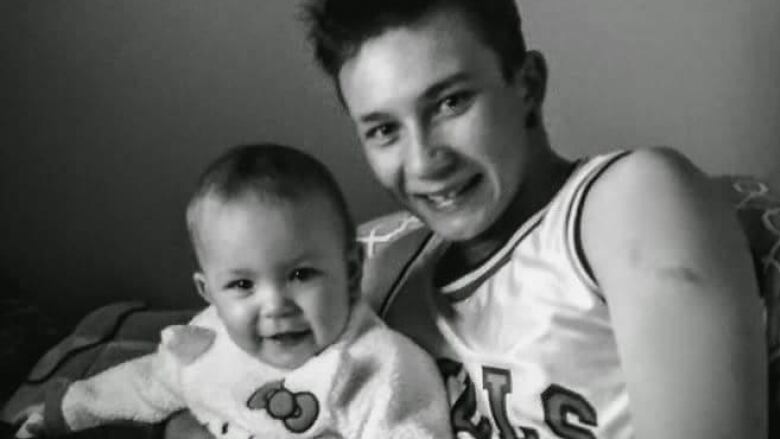Police don't know if crash or knee strikes responsible for death of Jordan Lafond
Autopsy performed on Jordan Lafond 8 days after his death, body was already embalmed

A coroner's inquest heard Monday thatdoctors were unable to determine the source of severe head trauma that killed a Saskatoon man in 2016.
Jordan Lafond, 22, died after a stolen truck he was in crashed on the outskirts of the city in 2016.
While police initially believed Lafond died due to injuries received in the crash, an investigation was opened after it was discovered an officer used force while arresting the man, including knee-strikes to the upper body and head.
One of the arresting officers said Lafond was resisting arrestand the knee-strikes were needed before handcuffing him.
The matter was complicated further as the coroner didn't order an autopsy for eight days after Lafond's death. The body had been embalmed before the procedure could take place.
Det. Sgt. Kory Ochitwa led the investigation into the use of police force against Lafond. He said they didn't know the extent of the force used against Lafond, leading to the lengthy gap between his death an an autopsy.
He said the extent of force only became clear after police watched camera footage blown up onto a 60-inch television screen, rather than a computer monitor.
Ochitwa said a second officer may also have kicked or kneed Lafond, although the evidence isn't clear.
The inquest was originally set to begin in March, but was postponed after a lawyer became sick.
In March, Lafond's family said they were disappointed after the postponement and wanted more information in his death.
Four of the jurors are Indigenous. Three of them were selected from a specially-selected pool of Indigenous people after a request was made by the family.
A coroner's inquest is designed to look into how a person died and make recommendations as to how a similar death might be avoided in the future. Inquests are not designed to assign blame or lay criminal charges.
The inquest is expected to run all week at Saskatoon's Court of Queen's Bench.












_(720p).jpg)


 OFFICIAL HD MUSIC VIDEO.jpg)
.jpg)



























































































